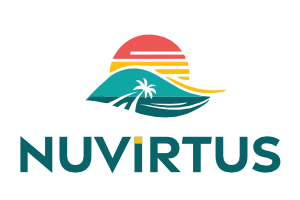Barcelona’s real estate market has become increasingly complex for investors and property owners seeking to capitalize on the city’s booming tourism sector. Navigating the intricate legal landscape requires comprehensive understanding of local regulations, municipal policies, and strategic investment approaches.
Understanding Barcelona’s Rental Regulation Ecosystem
Barcelona’s city council has implemented stringent regulations to control the proliferation of tourist accommodations, making it crucial for investors to comprehend the legal framework before entering the market. The city’s approach aims to balance tourism development with residential housing preservation.
Key Legislative Milestones
In recent years, Barcelona has introduced several critical measures to regulate short-term rentals:
- 2015 Moratorium: Halting new tourism accommodation licenses
- 2017 Urban Accommodation Decree: Restricting new tourist rental permits
- 2020 COVID-19 Adaptations: Modified rental regulations considering pandemic impacts
Licensing and Compliance Requirements
Obtaining a legal tourism rental license in Barcelona involves navigating a complex bureaucratic process. Investors must secure:
- Specific municipal tourism accommodation license (HUTB)
- Compliance with urban planning regulations
- Neighborhood association approvals
- Comprehensive property registration
Essential Documentation
Successful applicants must prepare a comprehensive documentation package, including:
- Property ownership certificates
- Architectural compliance reports
- Energy efficiency certificates
- Detailed floor plans
Financial Considerations and Tax Implications
Investors must understand the nuanced tax environment surrounding tourism rentals in Barcelona. The city imposes specific taxation structures that directly impact investment profitability.
Tax Breakdown
Rental income is subject to:
- Non-resident income tax (typically 19-24%)
- Municipal property taxes
- Value-added tax considerations
Platform Regulations and Digital Rental Ecosystem
Barcelona has implemented strict regulations targeting digital platforms like Airbnb, requiring them to comply with municipal guidelines and report rental activities.
Platform Compliance Strategies
Digital rental platforms must now:
- Register all rental properties
- Provide transparent reporting to city authorities
- Ensure adherence to occupancy limitations
Neighborhood Dynamics and Community Considerations
Barcelona’s residential communities play a significant role in shaping tourism rental policies. Investors must consider neighborhood sentiments and potential restrictions imposed by building associations.
Community Approval Processes
Successful investors understand the importance of:
- Engaging with local community stakeholders
- Respecting residential tranquility
- Implementing noise and occupancy management strategies
Risk Mitigation and Legal Protection
Comprehensive legal protection requires proactive strategy and professional guidance. Investors should consider:
- Specialized real estate legal counsel
- Comprehensive insurance coverage
- Regular compliance audits
- Flexible investment structures
Future Market Predictions
Barcelona’s real estate market continues evolving, with anticipated trends including:
- Increased regulatory sophistication
- Growing emphasis on sustainable tourism
- Technology-driven rental management
- More stringent environmental requirements
Conclusion: Strategic Navigation of Barcelona’s Rental Landscape
Successfully investing in Barcelona’s tourism rental market demands comprehensive understanding, strategic planning, and continuous adaptation. Investors who prioritize legal compliance, community engagement, and professional guidance will be best positioned to thrive in this dynamic environment.
Disclaimer: This guide provides general information and should not be considered definitive legal advice. Always consult local legal professionals for specific guidance.








Join The Discussion